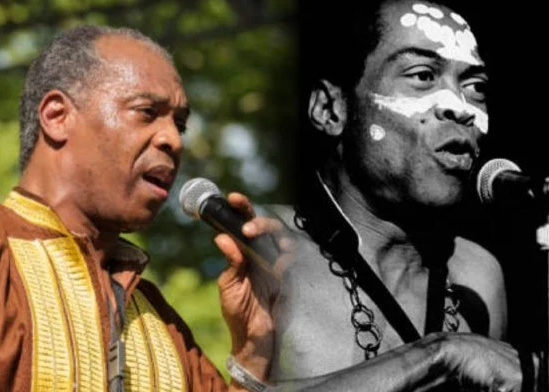Femi Kuti’s journey as a musician began under the colossal shadow of his father, the legendary Afrobeat pioneer Fela Kuti. In 1986, driven by a desire to forge his own artistic path and escape the confines of his father’s overwhelming influence, Femi made the momentous decision to break away from his father’s band and form his own. This decision, however, was met with fierce resistance from his father’s loyal followers, who perceived his departure as an act of rebellion against Fela. Having witnessed Fela’s own rebellious departure from his highlife musician father’s band years earlier, the fans saw Femi’s move as a betrayal of the Afrobeat legacy and a direct challenge to Fela’s authority. This initial backlash created a challenging environment for Femi as he embarked on his independent musical career.
Further complicating Femi’s nascent career was his father’s public disapproval of his debut album. Fela, a towering figure in the music world, publicly denounced the album as “rubbish” during its launch, a devastating blow to the young musician seeking to establish his own identity. This public criticism added another layer of difficulty to Femi’s journey, as he had to contend not only with the disapproval of his father’s fans but also with the weight of his father’s negative judgment. This period marked a trying time for Femi, who described feeling lost and unsure of his future in music, given his lack of formal training and the pressure of emerging from his father’s shadow.
Despite the significant obstacles placed in his path, Femi Kuti persevered, driven by an unwavering determination to succeed. He viewed his decision to leave his father’s band as a point of no return and resolved to forge ahead, even if it meant facing failure. This resilience became the cornerstone of his musical career, fueling his dedication to honing his craft and establishing his own distinct voice within the Afrobeat genre. He understood that proving himself would require relentless effort and dedication, and he committed himself to the arduous task of carving his own space in the music world.
Years later, a turning point arrived that signaled a shift in Fela’s perspective on his son’s music. Femi described witnessing his father perform two of his songs, “No Place For My Dreams” and “Mind Your Business,” at the African Shrine, a symbolic gesture that indicated Fela’s eventual acceptance and acknowledgment of his son’s talent. This event served as a powerful validation for Femi, affirming the validity of his musical pursuits and signifying a reconciliation between father and son. It marked a moment of profound personal and artistic significance, a moment that cemented Femi’s place as a legitimate artist in his own right.
Following this public display of support, Fela further solidified his approval by retracting his earlier criticism and publicly praising Femi’s musical achievements. This reversal represented a full circle moment in their relationship, demonstrating Fela’s recognition of his son’s growth and maturity as a musician. This public endorsement not only boosted Femi’s career but also served as a testament to the power of perseverance and the enduring bond between father and son, even amidst creative differences and initial opposition.
Femi Kuti’s journey serves as a powerful narrative of artistic independence and perseverance. He overcame significant challenges, including the pressure of his father’s legacy and the initial resistance from his father’s followers, to establish himself as a respected musician in his own right. His story highlights the importance of pursuing one’s own artistic vision, even in the face of adversity, and underscores the transformative power of resilience and dedication in achieving one’s goals. Femi’s success stands as a testament to his unwavering commitment to his craft and his ability to forge his own distinct path within the rich tapestry of Afrobeat music.


